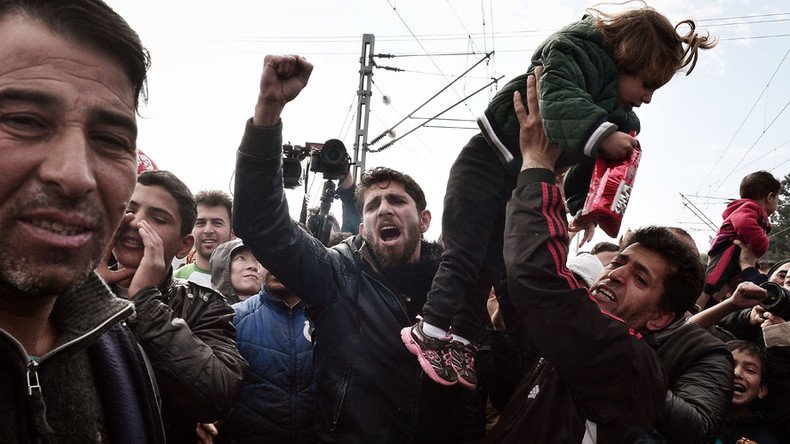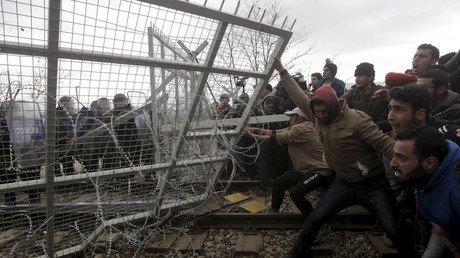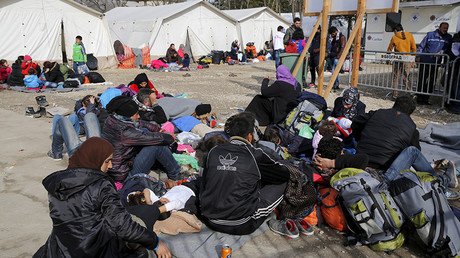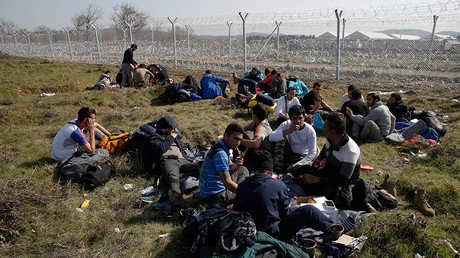Asylum seekers must now prove they come from warzones to enter Macedonia – Greek police

Macedonian authorities have introduced new restrictions for asylum seekers wanting to enter the country for further transit into the EU, Greek police say. They are demanding refugees provide proof they have come from places where hostilities are ongoing.
Police officials, speaking on condition of anonymity, have told AP that only those who come from cities where fighting is taking place will be validated to enter Macedonia starting from this Sunday. People from Syria’s Aleppo are considered refugees, since it’s a warzone, whereas citizens of Damascus would not be allowed to enter. The Syrian capital is deemed safe.
The same applies to the Iraqi capital of Baghdad, despite the fact that both capitals are subject to terrible acts of terror that claim the lives of dozens of civilians on a regular, almost daily basis.
READ MORE: 60 killed in ISIS suicide truck bomb attack south of Baghdad - police
In Greece, used by asylum seekers as the primary transit country on their way to the EU, there are estimated to be 13,000-14,000 people packed into an overcrowded refugee camp on the Macedonian border.
The governor of the Greek region of Central Macedonia, Apostolos Tzitzikostas, said on Saturday that his region is unable to cope with the migrant influx, which according to his estimates amounts to some 60 percent of the total number of migrants in the country.
“It’s a huge humanitarian crisis. I have asked the government to declare a state of emergency in the area,” Tzitzikostas said, reasoning that emergency measures would pave the way to secure emergency supplies and food for those in need.
At the beginning of the week, Macedonian authorities decided to close their frontier gates to refugees originating from Afghanistan. The Serbian government also made the same decision. Following that, hundreds of Afghan refugees staged a protest at the Greek-Macedonian border on Monday.
Greek Prime Minister Alexis Tsipras insists that refugees newly arriving in Greece need to be relocated through the EU.
“Refugees want to go from here (Greece) further to the north (of Europe), but they cannot. I speak plainly, we must give these people decent housing, but all that we require is a fair distribution (of the refugees inside the EU),” PM Tsipras said in an interview to Germany’s Bild newspaper.
“We cannot be a permanent camp for the human souls who do not want to be here,” the Greek prime minister said.
The head of the Greek government insists that Athens is fulfilling all its obligations regarding refugees, whereas the rest of the EU is not.
Last Tuesday, the UN refugee agency (UNHCR) estimated that more than 122,000 asylum seekers had arrived in Greece via the Mediterranean Sea in January and February. Another 10,000 sailed to other EU member states across the Mediterranean.
This is believed to be more than in the entire first half of 2015.
The number of refugees in need of accommodation currently in Greece is about 24,000 people.















